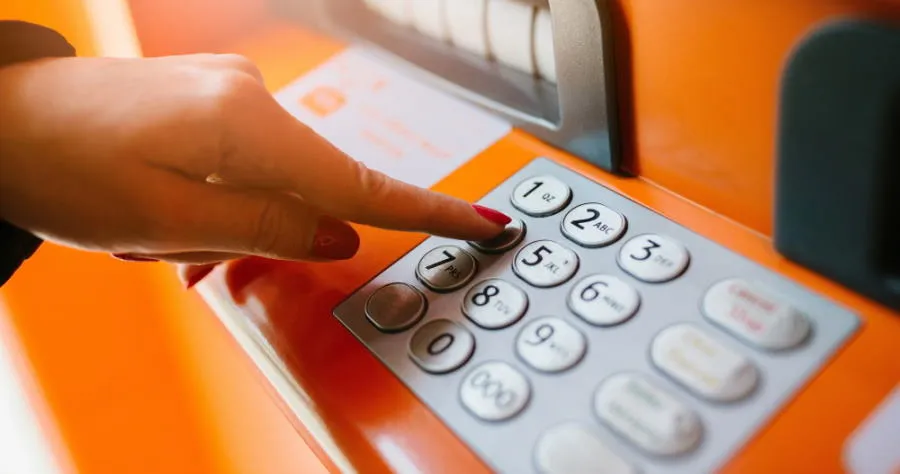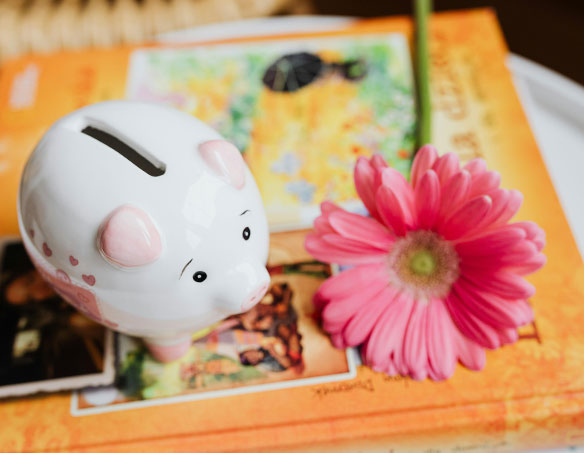“Would you like to check your current balance?” Do you always click NO? How often do you check your bank statement?
Checking your bank account statement can be a chore that fills you with dread and causes hot sweats, but it really has its benefits.
Financial phobia or Chrometophobia is a real thing, if you’re one of many who is left feeling anxious, dizzy and sick at the thought of opening your online banking or checking your balance, why not use Friday the 13th as the perfect opportunity to overcome your fears!
What are the benefits of checking your bank statements?
Checking your bank account on payday is likely to be the easiest date of the month to face it; it’s likely to be the healthiest it will look all month. Set aside 10 minutes each month to assess your transactions and highlight any areas you can improve.
Some banks even offer a text message service to tell you if your account reaches a certain threshold, which can make checking your statement less daunting.
Unnecessary Subscriptions – We all love the idea of being able to watch the latest shows and having access to online streaming facilities; but in reality, it might be a cost you can cut back on. Do you really need Netflix, Amazon Prime, Spotify, Disney+ and Apple TV? Maybe you can cancel a couple, or reduce your subscription to the more basic option that might be free, such as Spotify; where you can listen for free, with the occasional add. Take a look here for a comparison of the online TV & Film streaming services.
Are you still paying for your monthly gym membership on the premise that you might go once per month? Would it be cheaper to pay per visit instead?
If you’re on the fence, cancel and see if you miss it. You can always resubscribe in the future – you may even get a better deal as a new customer.
However, be careful not to cancel any direct debits before checking that you’re not still in contract, otherwise you’ll end up owing the remaining term of the contract.
Daily spending – Have you considered the cost of your daily coffee? Nationwide Coffee found that the average cost of our nations favourite, the latte, is £2.76. Another survey found that we each spend an average of £303 per year on coffee! Could you save by making your own at home instead? Does your workplace offer free drink-making facilities?
Plan ahead and make your lunches at home. It can be very tempting to pick up a meal deal for lunch now and again, but most cost between £3 and £5, so if you buy one 5 days per week, it could cost £1300 per year! You could also consider switching to batch cooking or making extra portions of your evening meal to take the next day for lunch.
Grocery shopping – How many times each week do you receive the dreaded message ‘Can you pop to the shop on your way home?’. We all know that 9 times out of 10, you’re going to pick up unnecessary items. Could you consider shopping online, and writing a meal plan and shopping list to not only reduce the amount of food (and money!) you waste, but also reduce the temptation of picking up those eye-catching offers… that we don’t really need!
Bulk buy; whilst it may seem expensive at first, bulk buying non-perishable items could save you money in the long run, if you can afford the larger cost initially. It’s definitely worth cross checking the cost, as some items may seem cheaper, but checking out the price per kilo/gram/litre etc can really help.
 Impulse Buying – The impulse buying trap is getting easier and easier to fall into. Our details are automatically linked to apps and sites, buying items, or subscribing to services can now take just a couple of taps.
Impulse Buying – The impulse buying trap is getting easier and easier to fall into. Our details are automatically linked to apps and sites, buying items, or subscribing to services can now take just a couple of taps.
Companies strive to make your purchase as frictionless as possible; this often means you give yourself less time to consider your purchase options. If you feel like you fall into this trap, then unlink your details, sign out often and put yourself up a few impulse buying barriers and speed bumps.
Fraud – UK Finance found that over £1.2 billion was stolen through fraud and scams in 2019; although over £1.8 billion was prevented, there’s still massive room for improvement. It’s worth searching your account at least once per month for any transactions you’re not sure of.
Some companies have different trading names that will appear on your statement. Most banks have compiled lists of alternate names, here are Nationwide’s, NatWest’s, Bank of Scotland’s, Lloyds and Halifax’s, if you bank with an alternate, they’ll often have a list too. Another option is to search the name of the business on the internet; this will typically offer some more guidance on who it is.
Checking for fraud will also help with protecting & improving your credit file; it’s important to check this for any errors or issues that you’re unsure of.
Have I conquered my fear?
After a few months, the chances are you’ll feel better and more in control of your finances, after keeping tabs on your transactions. Remember, this will take time and some work, especially if your account has been left in bad shape.
If you managed to cancel any subscriptions, why not set up a standing order to your savings account for the same amounts? Any savings you’ve made over the months you’ve been tracking your account could be used to treat yourself or pay off the balance on your credit card!


